Take a look at our it & technology law team's articles, publications and news:
all (195)
blog (26)
newsletters (53)
publications (41)
media coverage (14)
events (26)
press releases (15)
roadmap (20)

newsletter
AI chatbots: Fido in Poland
Artificial intelligence (AI) is entering the medical sector more and more boldly, transforming the healthcare system and changing the way patients and doctors communicate and how the process of caring for patients' health looks. One of the most exciting tools of this revolution are medical chatbots – AI-based programmes that support both patients and professionals by automating many tasks and offering personalised assistance.

publication
26 June 2025
D.Birnbauer P.Podsiedlik J.Böszörményi F.Terharen N.Kerschbaumer D.Rutecka
to the point: technology & digitalisation l June 2025
Welcome to the June edition of Schoenherr's to the point: technology & digitalisation newsletter!

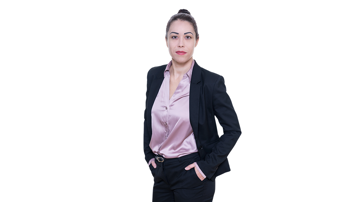
media coverage
Artificial Intelligence – Real Responsibility
This article was first published in Die Presse Recht Spezial, 21.05.2025

newsletter
Cyberfraud and the risk of suffering damage… twice!
The various forms of cyberfraud are ordinarily the subject of criminal proceedings. However, as a recent Supreme Court decision shows, they can also give rise to complex issues in civil proceedings, such as the victim's obligation to pay the purchase price a second time.

event
Legal Innovation Day
12 June 2025 | Schoenherr Attorneys at Law, Schottenring 19, 1010 Vienna







roadmap
Generative AI: catalysing transformation at the crossroads of legal tech
The world witnessed a technological revolution on 30 November 2022, when OpenAI launched ChatGPT, making generative AI broadly available virtually overnight. The impact was both immediate and profound. Within days, ChatGPT surpassed one million users, and by January 2023, it had reached approximately 13 million daily users. This unprecedented growth continued, with OpenAI reporting over 200 million weekly active users by August 2024. The rapid adoption of this technology is a testament to its transformative potential.

roadmap
IT security: from a chore to a game-changing advantage in legal advice
In 1993, our world changed as the internet became a publicly accessible space, creating a digital parallel to our analogue lives. It wasn't long before the term cybercrime entered our vocabulary. Today, cybercrime affects everyone – not just "careless" people or "sloppy" businesses. Every person and organisation is a potential target and has likely encountered cybercrime in some form.

roadmap
The transformation of attorney-client relationships
Seventy-five years ago, lawyers typically communicated with clients in person or by phone, while legal documents were sent by post, courier or, later, fax machines. With the advent of digital meetings and e-mail, the attorney-client relationship has evolved as well. Innovations in digitalisation, legal technology and AI are now reshaping how lawyers and clients interact, collaborate and resolve disputes, ushering in a transformative era in the legal profession.

roadmap
Liability for damages: the missing piece of the AI Act puzzle
On 1 August 2024, the AI Act – the world's first comprehensive legal regulation for artificial intelligence systems and models – came into force. The purpose of this legislation is to ensure safety and compliance with European values regarding the development and use of AI. However, it does not address issues of liability. It is important to note that the AI Act is not the only legislation dealing with AI that may impact its development in the EU. Other existing or planned regulations include the EU General Data Protection Regulation (EU) 2016/679, the Product Liability Directive, which allows people harmed by software (including AI software) to seek compensation from the software manufacturer, the General Product Safety Regulation 2023/988/EU, and intellectual property laws under the national laws of EU Member States.

newsletter
Mandatory AI training for employees in the EU: your guide to compliance
Starting 2 February 2025, Art. 4 of the AI Act will require businesses to ensure their workforce is equipped with a sufficient level of artificial intelligence (AI) literacy. With AI rapidly reshaping industries, this new regulatory obligation presents both a challenge and an opportunity. Here's everything you need to know about the new AI literacy requirements and how your company can successfully meet them.

publication
to the point: technology & digitalisation l January 2025
Welcome to the January edition of Schoenherr's to the point: technology & digitalisation newsletter!

newsletter
The digital defence line: Hungary adopts comprehensive cybersecurity law
Cybersecurity is one of the most critical challenges of our time. On 17 December 2024, Hungary adopted a new law that comprehensively regulates the country's cybersecurity and implements the EU's NIS2 Directive. A milestone in Hungary's digital defence, the law came into effect on 1 January 2025.


newsletter
Poland: New technologies and food traceability
Today's food industry faces many challenges in ensuring food safety, quality and sustainability. As the demand for safe, healthy and organic food continues to grow, food traceability in the process of food making becomes a key element.


event
Leveraging AI in the Public Sector – Perspectives from Serbia and Germany
7 November | Serbia

publication
30 October 2024
Central and Eastern Europe
CEE team
to the point: technology & digitalisation l October 2024
Welcome to the October edition of Schoenherr's to the point: technology & digitalisation newsletter!

newsletter
What should employers expect from the EU AI Act?
Perspective of Serbia / non-EU country

newsletter
AI regulation and development in Serbia
AI is developing rapidly in Serbia and numerous initiatives are emerging daily. Therefore, a working group, which includes our Schoenherr expert Marija Vlajković, is already in the process of drafting a new Law on Artificial Intelligence. The final draft is expected by spring 2025.

event
(R)evolution in cybersecurity? Don't be surprised by NIS2 and Czech legislation
3 October 2024 | Czech Republic / online


newsletter
Privacy concerns in web scraping: a GDPR and Serbian privacy law perspective
When developing their models, AI providers use various data sets. Sometimes these are provided by their clients, as in the case of tailor-made chatbots, and sometimes the models are trained on licensed or even publicly available data. In both situations, the data sets almost always include personal data. Thus, AI developers should carefully consider their obligations under the GDPR as well as local privacy law, depending on what applies to them.



newsletter
The status and future prospects of AI regulation and development in North Macedonia
North Macedonia currently lacks AI-specific regulations, lagging behind neighbouring countries that have implemented guidelines or laws. Although the Macedonian Fund for Innovation and Technology Development (FITD) and the government initiated efforts in 2021 to create a National Strategy for AI (National Strategy), progress has been slow due to challenges such as insufficient data, human resources, and technical capabilities. Despite this, there is a strong commitment, supported by organisations like the World Bank and UNDP, to develop a comprehensive AI strategy aligned with European Union (EU) standards.



newsletter
AI Act published in the Official Journal of the EU
The AI Act was published in the Official Journal of the EU on 12 July 2024.


publication
27 June 2024
D.Rutecka P.Podsiedlik P.Baran T.Kulnigg A.Radonjanin M.Vlajković
to the point: technology & digitalisation l June 2024
Welcome to the June edition of Schoenherr's to the point: technology & digitalisation newsletter!


newsletter
Austria: New verification requirements for website and platform operators
A judgment of the Austrian Supreme Court of Justice published on 26 April 2024 (6 Ob 210/23k) requires website and platform providers to review their processes under the DSA.

newsletter
Czech Republic: Deadline to apply DORA looms
Along with the NIS2 directive, the Digital Operational Resilience Act (DORA)[1] is an essential piece of European legislation aiming to bolster cybersecurity within the EU. Unlike the NIS2 directive, DORA aims specifically at enhancing the operational resilience of the financial sector, while establishing a comprehensive framework to ensure that all financial entities regulated under DORA can withstand, respond to, and recover from disruptions and threats related to information and communications technology (ICT).

newsletter
The state of cybersecurity regulation in the Czech Republic: NIS 2 transposition underway, deadline 17 October 2024
The NIS2 directive[1] is a landmark piece of European cybersecurity legislation, significantly impacting the cybersecurity practices and responsibilities of European businesses and organisations

press release
Austria: Schoenherr advises Verdane fund on investment in fintech fiskaly
Schoenherr advised the European private equity fund Verdane on its investment in fiskaly, a Vienna-based start-up in the fintech sector. Closing of the transaction is still subject to the satisfaction of certain closing conditions.


publication
to the point: technology & digitalisation l May 2024
Welcome to the May edition of Schoenherr's to the point: technology & digitalisation newsletter!

event
Virtuelle Gegenstände - Insbesondere in Lootboxen
Freuen Sie sich auf spannende Vorträge zum Thema Virtuelle Gegenstände - Insbesondere in Lootboxen.

publication
26 April 2024
D.Hofmarcher T.Kulnigg N.Kerschbaumer D.Tyrybon C.Pretscher P.Podsiedlik D.Rutecka P.Baran
to the point: technology & digitalisation l April 2024
Welcome to the April edition of Schoenherr's to the point: technology & digitalisation newsletter!


publication
21 March 2024
K.Szczudlik D.Rutecka P.Podsiedlik F.Terharen K.Pikuła P.Baran A.Radonjanin M.Vlajković N.Kerschbaumer
to the point: technology & digitalisation l March 2024
Welcome to the March edition of Schoenherr's to the point: technology & digitalisation newsletter!

publication
22 February 2024
D.Rutecka D.Hofmarcher D.Tyrybon N.Kerschbaumer F.Terharen K.Szczudlik K.Solarz-Włodarska P.Podsiedlik K.Pikuła
to the point: technology & digitalisation l February 2024
Welcome to the February edition of Schoenherr's to the point: technology & digitalisation newsletter!



roadmap
Key implications of the NIS 2 Directive: increased liability risk for management and broader scope
The revision of the NIS Directive (EU) 2016/1148 ("NIS 1") was published on 27 December 2022 in the form of Directive (EU) 2022/2555 ("NIS 2") and entered into force on 16 January 2023. NIS 2 is the Commission's response to Member States' inconsistent and fragmented implementation of NIS 1. The revision of this first EU-wide cybersecurity legislation will mean significant and far-reaching changes for companies in "critical" sectors.

roadmap
Staying compliant in a digital world: why companies should take note of AI
In an era of rapid technological advancement, businesses face an ever-evolving regulatory landscape.

roadmap
Cybersecurity in international arbitration: on the road towards green flags
Cybersecurity matters. In a technology-driven society, cybersecurity serves to protect all categories of digital data from theft, misuse and damage. Its importance for individuals, organisations and businesses, especially those operating with sensitive data, is on the rise as cyberattacks become more frequent and sophisticated.


publication
to the point: technology & digitalisation l January 2024
Welcome to this year's first edition of Schoenherr's to the point: technology & digitalisation newsletter!


publication
21 December 2023
G.Leissler T.Kulnigg N.Kerschbaumer D.Tyrybon M.Czernin F.Terharen U.Rath D.Rutecka
to the point: technology & digitalisation l December 2023
Welcome to the December edition of Schoenherr's to the point: technology & digitalisation newsletter!

publication
to the point: technology & digitalisation l November 2023
Welcome to the November edition of Schoenherr's to the point: technology & digitalisation newsletter!



event
Forum Assekuranz | digitalisation, AI, regulation & ESG in the insurance world
21 - 22 November 2023 | DoubleTree by Hilton Vienna Schönbrunn

publication
31 October 2023
N.Kerschbaumer D.Tyrybon M.Schmiedinger C.Pretscher M.Vlajković M.Pressler D.Rutecka
to the point: technology & digitalisation l October 2023
Welcome to the October edition of Schoenherr's to the point: technology & digitalisation newsletter!

press release
The future of global legal services: innovation and AI in focus at Legal Tech Hub Innovators' Forum
The modern world of work is characterised by rapid technological development. In addition to blockchain and metaverse, the use of artificial intelligence (AI) has recently come into focus. Its application is also a crucial question in the legal industry. How will AI change legal advice? Will it be equally beneficial for companies and for lawyers and legal advisors? Where should the legal profession integrate AI into working realities to best meet this challenge? And where should it be avoided?

press release
Austria: Schoenherr advises Erste Bank on implementation of first AI based financial tool in Austria
Schoenherr advised Erste Bank der oesterreichischen Sparkassen AG on the legal implementation of the 'Financial Health Prototype'. The 'Financial Health Prototype' is a text-based chatbot that combines Erste Bank’s financial expertise with AI technology from OpenAI and ChatGPT to answer 24/7 financial-related questions.

publication
28 September 2023
A.Hirsch N.Kerschbaumer D.Tyrybon F.Terharen M.Vlajković D.Rutecka
to the point: technology & digitalisation l September 2023
Welcome to the September edition of Schoenherr's to the point: technology & digitalisation newsletter!


newsletter
Bridging the gap between Serbian regulations and the GDPR: Serbia's Data Protection Strategy unveiled
In late August 2023, at the initiative of Serbia's Data Protection Commissioner (the "Commissioner"), the Government of Serbia adopted the Data Protection Strategy for the 2023-2030 period (the "Strategy").
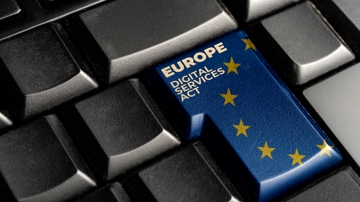
blog
The EU Digital Services Act: 19 designated online platforms have completed their last-minute compliance preparations, Serbia is just looking over its shoulder
While most provisions of the EU Digital Services Act ("DSA") will not begin to apply until February 2024, the EU Commission has nevertheless designated 19 "very large online platforms" and "very large search engines" – so-called gatekeepers – for which the strictest rules under the DSA took effect on 25 August this year.

event
IBA CEE Conference – The Future of Legal Management
22 September 2023 | Intercontinental Athénée Palace, Bucharest

newsletter
Third time's the charm? EU-US Data Privacy Framework revamped and reloaded
On 10 July 2023, the European Commission adopted an adequacy decision for a lawful data transfer from the EU to the USA for the third time. [1] This means that personal data may again be lawfully transferred to the US. This will facilitate the use of US service providers for EU companies.


publication
27 June 2023
K.Zmatlíková M.Voldánová P.Korál H.Hangler A.Prochazka J.Kupčík M.Svoboda N.Dubská
CZ: Schoenherr Journal Edition 14
The Schoenherr Journal, published by Schoenherr's Prague office, examines the latest important legal developments in the Czech Republic.


newsletter
Virtuelle Gesellschafterversammlungen
Mit 30.06.2023 enden in Österreich die letzten Covid-Maßnahmen, virtuelle Versammlungen von Gesellschaften soll es aber auch in Zukunft noch geben.

newsletter
EU: CJEU lowers threshold for GDPR damages
Last Thursday the Court of Justice of the European Union ("CJEU") issued a long awaited ruling on damages resulting from a data protection infringement (C-300/21). Since the Regulation (EU) 2016/679 (General Data Protection Regulation; "GDPR") came into force on 25 May 2018, claims for damages under Art 82 GDPR due to alleged data protection violations like unlawful data processing or incompliance with the GDPR as well as in the context of data breaches or leaks have been steadily increasing. The CJEU's recent ruling clarifies essential issues but raises just as many questions.

publication
28 April 2023
T.Kulnigg N.Kerschbaumer D.Tyrybon D.Rutecka M.Vlajković F.Terharen G.Leissler
to the point: technology & digitalisation l April 2023

blog
Data protection stopping machine overlords?
The Italian Data Protection Authority "Garante per la Protezione dei Dati Personali" recently banned the use of ChatGPT in Italy due to allegations of unlawful collection of personal data and the lack of an age verification system for children
ChatGPT is a well-known artificial intelligence chatbot developed by OpenAI. It is a simulated chatbot that was primarily created to fulfil customer service tasks. However, people tend to use it to perform many other tasks, such as writing essays, programming or predicting business developments. ChatGPT uses not only data from sources such as websites, articles or textbooks to improve its interaction with its users and to fulfil the set tasks, but also collects and processes data from the users and from the information they provide.

newsletter
Serbia adopts ethics guidelines for artificial intelligence
On 23 March 2023, the Serbian government adopted Ethics Guidelines for the Development, Implementation and Use of Reliable and Responsible AI ("Guidelines"), which may be seen as yet another step in the process of harmonising Serbia's legislative framework with the European Union, following the Proposal for an AI Regulation announced by the EU Commission two years ago. The Guidelines largely rely on UNESCO's Recommendation on the Ethics of AI adopted in 2021, which Serbian representatives also helped create. Since the EU is awaiting its regulatory framework on AI, Serbia took the first step down this road as well.

publication
31 March 2023
T.Kulnigg N.Kerschbaumer D.Tyrybon G.Irsa-Klingspiegl D.Rutecka A.Pabst M.Vlajković A.Hirsch
to the point: technology & digitalisation l March 2023

blog
GPT-4 shows the ever-increasing importance of legal considerations pertaining to AI
Generative AI has made quantum leaps in the last year. Aside from multiple text2 image models there are large language models producing largely accurate and convincing texts in reply to prompts provided by a user. In November last year OpenAI made available the functionality of their vast 175 billion parameter model GPT-3.5, which was fine-tuned to interpret prompts formulated as questions. ChatGPT is a turning point in the public perception of AI, as it provided compelling texts with comparatively high factual accuracy.

blog
North Macedonia: The Data Protection Act and enforcement challenges
After the adoption of the General Data Protection Regulation of the European Union (EU) 2016/679 ("GDPR"), as an obligation based on the Stabilisation and Association Agreement between EU and North Macedonia, a new data protection regime was adopted. Since 2020, the matter of personal data protection in the Republic of North Macedonia is regulated by the new Act on Personal Data Protection (Official Gazette of the Republic of North Macedonia, nos. 42/20, 294/21) ("LPDP"), effective as of 24 February 2020.

blog
Serbia incentivises start-up-ecosystem
To attract investors in the area of innovation technologies, Serbia has adopted a set of subsidies relating to employees' salaries and corporate income taxes. In recent years, the country has set its sights on being one of the largest European hubs for EU and overseas IT companies using talented IT workforce only as an outsourcing service supplier while retaining actual project development in the countries of capital origin. This is seen as an opportunity to motivate foreign IT companies doing business in Serbia not only to shift their operations to Serbia on a larger scale, but to tie IP rights on their tech products to their affiliated Serbian companies.


publication
28 February 2023
N.Kerschbaumer D.Tyrybon M.Czernin T.Kulnigg M.Woller M.Schmiedinger D.Rutecka M.Neagu B.Kapeller-Hirsch
to the point: technology & digitalisation l February 2023
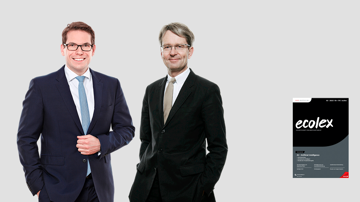
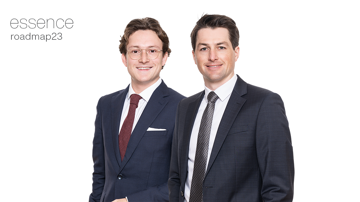

publication
31 January 2023
T.Kulnigg M.Czernin D.Hofmarcher S.Khalil M.Neagu M.Nusser M.Pressler D.Rutecka A.Tipotsch
to the point: technology & digitalisation l January 2023


newsletter
EU: The end of a dry spell – NIS 2 published
After several delays, the revision of the NIS Directive was published in the Official Journal of the European Union on 27 December 2022 in the form of Directive (EU) 2022/2555 ("NIS 2").

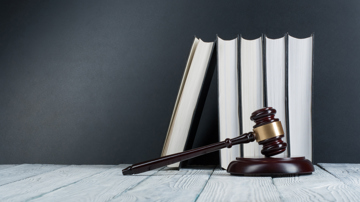


newsletter
The Digital Services Act: A tight timeline for compliance?
What happened?
The Digital Services Act ("DSA")1 was published in the Official Journal of the European Union on 27 October 2022.2 This means that the Act, targeting numerous online services, will enter into force only 20 days later, on 16 November 2022.


media coverage
Verbandsklagen unter der DSGVO: Noch nicht, aber bald
Eine EuGH-Entscheidung in einem deutschen Fall hat wenig Auswirkungen auf Österreich. 2023 aber ist mit einer Aufwertung des kollektiven Rechtsschutzes beim Datenschutz zu rechnen

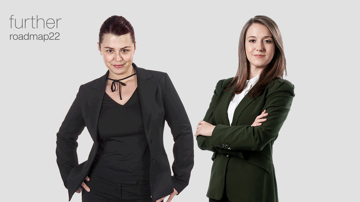
roadmap
The EU Clinical Trial Regulation: big data and … human rights
The new EU Clinical Trial Regulation ("Regulation No 536/2014" or "CTR") was published in May 2014 as Regulation (EU) No 536/2014 of the European Parliament and of the Council of 16 April 2014 on clinical trials on medicinal products for human use. It repeals Directive 2001/20/EC and is applicable to a certain extent as of the end of January 2022.



roadmap
Does the Digital Services Directive stipulate a right to updates?
The new Digital Services Directive (DSD) aims to harmonise certain aspects of consumer protection law by providing consumers a mandatory warranty for digital content and digital services supplied by a vendor. First and foremost this concerns contracts on the purchase or rental of software (usually comprising licence agreements) or cloud services.

roadmap
Does a new era of crypto tax transparency lie ahead?
For those who have been paying little attention to the taxation of their crypto assets, things are about to get heated.

media coverage
Wie man ein 64-kg-Kunstwerk als NFT verkauft
Derzeit besteht ein regelrechter Run auf digitale Kunstwerke, deren Einmaligkeit durch „Non-Fungible Token“ (NFT) garantiert ist. Das gute alte ABGB ermöglicht es, diese Technologie für körperliche Schöpfungen zu nutzen.
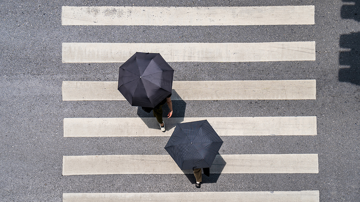
media coverage
Non-Fungible Tokens: Ist digitale Kunst versicherbar?
Digitale Kunstwerke in Form von Non-Fungible Tokens (NFTs) erzielen bei Auktionen Millionenpreise. Für Sammler stellt sich daher die Frage, ob sie die Werke versichern können


media coverage
Dissonant Optimism: Mergers and Acquisitions in the Bulgarian Technology Industry


newsletter
Blockchain and (Un)Real Estate
Blockchain technology has – so far – not lead to a transfer of the world's land registers onto this technology or to a "tokenization" of title (documents). The only significant exception in this respect is Georgia where a purchaser's title to real property can be registered by execution of a smart contract.

newsletter
NFT art: The most important (legal) questions for artists, buyers in general and museums



event
NFT: An all-round legal view of Non-Fungible Tokens | Webinar
Did you miss our webinar, or do you want to listen to the discussed topics again? Watch the NFT webinar video recordings here!

newsletter
When a museum buys an NFT: Legal challenges and considerations
The story of our NFT self-experiment does not end with the selling of the token. To the contrary, it is only the start: The buyer – in our case the Museum Francisco Carolinum in Linz – wants to use the artwork for their purposes. In general, what legal considerations should a museum keep in mind?

newsletter
NFTs: What about energy and climate issues?
When we started our NFT self-experiment, it did not take long before questions relating to energy consumption came up. According to our estimates, the two transactions (i) minting of the token and (ii) authorisation of an eventual sales processing, produced a CO2-footprint of over 100 kg of CO2EQ.



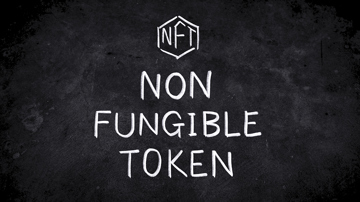
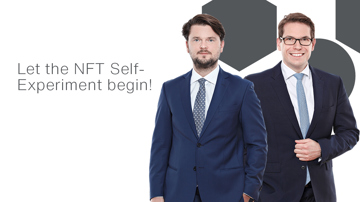
newsletter
Let the NFT Self-Experiment begin!
Non-fungible tokens (NFTs) aren't new, in fact they've been around for years. However, it took the auction of an NFT linked to an image by Christie's Auction House and the fall of the hammer at a spectacular USD 69 million to create worldwide attention and interest in NFTs.

press release
Austria: Schoenherr and Museum Francisco Carolinum clarify NFT Art
Schoenherr's IP & Technology practice group has set itself the goal of providing clarity on Non-Fungible Tokens (NFTs) in the art and culture industry. In collaboration with the Museum Francisco Carolinum Linz in Upper Austria, the questions preoccupying artists, collectors and museums will be addressed at one of the world's first art exhibitions on NFTs in art. An important milestone for this has already been reached: The museum recently acquired their first NFT artwork – a work of art by conceptual artist and Schoenherr partner Guido Kucsko, that was also used in a Schoenherr team's self-experiment.

newsletter
Facial recognition – Austrian regulations v European approach?
Over the last couple of years, more and more countries have deployed technologies that allow them to match digital images of a person (e.g. from a surveillance camera) against a database of pictures.

newsletter
Facial recognition technology: regulations and use
In recent years there has been an increased use of technologies that match a person's digital image (eg, from a surveillance camera) to a picture database. These technologies facilitate various tasks, including:





roadmap
COVID-19 – a catalyst for digital assets and crypto trading regulation?
The economic impact caused by the COVID-19 pandemic has not only significantly changed the way we work, travel and shop, but has sent a large number of investors on the search for assets that can provide a safe haven during the ongoing crisis and its macroeconomic events.

roadmap
IT projects: Everything agile or still waterfall?
Agile project methods have been a topic of conversation for years. There is hardly a management consultant who does not swear by them and hardly a company that does not prescribe "agile" as a miracle cure for many homemade problems. Agility in project management has almost become mandatory, for better or worse.

roadmap
2021
Quickly adapt with an e-commerce presence and digital business models
The COVID-19 crisis has forced many businesses to sell their goods and services online. Limitations on the number of people who can enter a store or restaurant have made e-commerce solutions necessary even for companies that have never used this channel before.

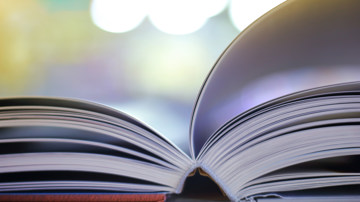



publication
Global Legal Insight: Al, Machine Learning & Big Data 2020
The Global Legal Insights series provides essential insights into the current legal issues, providing readers with expert analysis of legal, economic and policy developments through the eyes of the world's leaders.

media coverage
Bulgaria: Lawyer Kristina Chakarova for the monitoring of mobile devices and the European experience
Under the state of emergency, a number of measures restricting personal freedoms were introduced. Among the controversial proposals was mobile device monitoring during the COVID pandemic.

publication
29 April 2020
C.Haid T.Kulnigg S.Khalil M.Woller M.Pressler V.Carranza-Berg D.Rutecka
to the point: technology & digitalisation l April 2020
Welcome to our April edition of Schoenherr's to the point: technology & digitalisation newsletter!

blog
Das COVID-19-GesG – aktuelles zu Virtuellen Versammlungen im Gesellschaftsrecht und zu elektronischen Notariatsakten
Update 10/04/2020
Der Nationalrat hat unter anderem im Zuge der COVID-19-Gesetzgebung mehrere gesellschaftsrechtliche Maßnahmen im Rahmen eines sog. gesellschaftsrechtlichen COVID-19-Gesetzes (COVID-19-GesG) beschlossen.


blog
Court hearing via social network – has Europe missed its chance?
Digitalisation is on everyone's lips. Parts of the judiciary – at least in some European countries – are hesitant. Austria introduced an electronic legal communication system for most Austrian courts decades ago.


publication
to the point: technology & digitalisation l January 2020
Welcome to our third edition of Schoenherr's to the point: technology & digitalisation newsletter!

press release
Austria: Lawyer vs. Robot: Is there a future without human lawyers?
On 10 December, experts from both legal practice and academia spent the evening at the "Lawyer vs. Robot: A lost cause?" event which is part of the event series TECHNOLOGYLEGAL, a collaboration between Professor Christian Piska from the University of Vienna, and Christian Schmelz, partner at Schoenherr Vienna.

blog
European Commission's Expert Group publishes report on Regulatory Obstacles to Financial Innovation
Just in time for Christmas, the European Commission's Expert Group published its eagerly awaited final report on regulatory obstacles to financial innovation on 13 December 2019 (the "Report").

blog
Update on Artificial Intelligence and Competition Law
On 6 November 2019, the German Cartel Office and the French Competition Authority published a joint report on the competition risks resulting from the use of algorithms (the "Report"). The Report tackles four main issues:

press release
Second Tech Night @ Schoenherr: Digital adaptability as a prerequisite for success
Am 21. November fand die zweite "Tech Night @ Schönherr" statt. Die von der Schönherr Technology & Digitalisation Gruppe ins Leben gerufene Eventreihe befasst sich mit rechtlichen Rahmenbedingungen und Herausforderungen im Kontext aktueller digitaler und technologischer Entwicklungen.
blog
Facebook's Libra: The new generation of cryptocurrencies?
"When I think about all the different ways that people interact privately, I think payments is one of the areas where we have an opportunity to make it a lot easier," Zuckerberg said on 30 April 2019 at Facebook's F8 annual software developer conference in San Jose, California.

blog
Increased activity of the Polish Data Protection Authority
As of November 2019, the Polish Data Protection Authority (Urząd Ochrony Danych Osobowych; "UODO") has fined three Polish companies and one local government institution for non-compliance with the GDPR.

blog
Digital foundation of an Austrian limited liability company
The Electronic Notarial Form Foundation Act (Elektronische Notariatsform-Gründungsgesetz) ("ENG") came into force on 1 January 2019 and enables going forward the digital foundation of an Austrian limited liability company ("GmbH") by way of an electronic notarial deed. The Austrian notaries were entrusted with the implementation of the digital foundation procedure. Since autumn 2019, the first notaries in Austria have been offering the digital foundation process of a GmbH. Schoenherr attorneys at law, was the first person in Austria to accompany a digital foundation process.
Before we describe the digital foundation in practice, we briefly describe the notarial process of founding a GmbH in general: (i) execution of the deed of incorporation / articles of association as Austrian notarial deed (Notariatsakt), which essentially requires that the notary reads out the agreement and the parties sign the agreement in front of the notary, (ii) appointment of the first managing director(s) by way of a shareholders' resolution (by way of a notarial protocol, circular resolution with certified signatures or – as this is done in practice – as part of the notarial deed described under (i)), (iii) execution of the specimen signatures of the managing director(s) with their signatures being certified by a notary public (this could also be done by a foreign notary or an Austrian embassy/consulate) and (iv) execution of the commercial register filing again with signatures being certified by a notary public or Austrian embassy/consulate.
The ENG now attempts to fully digitalize such process. The process in practice can be described as follows:


newsletter
CJEU: "opt-out" language does not create valid cookie consent - Austria
Case: C‑673/17; Bundesverband der Verbraucherzentralen und Verbraucherverbände — Verbraucherzentrale Bundesverband eV vs Planet49 GmbH

blog
FinTech 2019 in Austria
Financial technologies, or FinTechs, are rapidly changing the finance/banking sectors, and sometimes even shift whole markets online, and make it possible to deal, invest or lend money without ever needing to deal with a traditional bank.

blog
Serbia catches up with the GDPR
1. New Data Protection Law adopted and applicable
After a public hearing that lasted more than a year, the National Assembly of the Republic of Serbia adopted the new Data Protection Law (the "Law") on 9 November 2018. The Law is applicable as of 21 August 2019. The provisions of the Law itself have been modelled on, and largely comply with the provisions of the GDPR, as part of the wider process of harmonising the national law of Serbia with EU law, which was one of the main reasons for the adoption of the new Law. Besides many novelties, the new Law elaborates on certain procedures, rights, obligations and competences.
Some of the most important novelties follow.

blog
EU-Finanz-Anpassungsgesetz 2019 │ New Challenges ahead for the virtual currency business
On 11 July 2019 the Austrian parliament adopted the EU-Finanz-Anpassungsgesetz 2019 ("EU-FinAnpG 2019") which implements the 5th EU Anti-Money Laundering Directive ("5th AML Directive") into Austrian law and introduces a number of amendments to Austrian laws relevant to the financial market.
In order to implement the 5th AML Directive, amendments to the Austrian Financial Markets–Money Laundering Act ("FM-GwG"), the Beneficial Owner Register Act (WiEReG) and the Act on Gaming (Glückspielgesetz), are necessary. These amendments include changes which will have a significant impact on business with virtual currencies.

press release
Austria: Schoenherr advises SynerGIS on the sale of its GIS and FM software development business to AED-SICAD
Schoenherr has advised the shareholders of the Synergis Informationssysteme GmbH ("SynerGIS") on the sale of its GIS (geographic information systems) and FM (facility management) software development business to AED-SICAD GmbH ("AED-SICAD").
blog
Schrems II.: the doom of Privacy Shield and Standard Contractual Clauses?
Read the Czech version below.
There are two fundamental legal mechanisms stipulated in the EU law for the transfer of personal data outside European Economic Area (EEA): Standard Contractual Clauses (SCCs) and Privacy Shield. Both of them are widely used in practice because they allow corporations within the EEA to legitimise the transfer of personal data beyond the borders of EEA. However, each of them behaves differently. SCCs are essentially contracts between (at least) two parties and a Privacy Shield on the other hand is an agreement between the United States Department of Commerce and the European Union, which regulates the transatlantic data transfers.
The Court of Justice of the European Union (CJEU) is prepared to hear a case challenging the validity of both of the above-mentioned transfer instruments. The case stems from a dispute between Max Schrems and Facebook dating back to 2013. Max Schrems is an Austrian lawyer and determined advocate for data protection. His focuses on the flow of (EU) personal data from US corporations to U.S. intelligence agencies. In 2017, Schrems set up a non-profit organisation NYOB1 with the aim to help citizens defend themselves against allegedly “omnipresent” technological corporations.

publication
Praxishandbuch Cloud Computing
Der Trend Cloud Computing ist längst in der Praxis angekommen und der Markt wächst.



publication
Glücksspielgesetz-Novelle 2019: Bedarf zur Regulierung von Lootboxen?
"Lootboxen" und Glücksspiel - eine heftig diskutierte Kombination. Mit dem steigenden Verbreitungsgrad von Lootboxen gerät die Frage vermehrt in den Fokus, ob Lootboxen Gemeinsamkeiten mit dem Glücksspiel aufweisen und damit reguliert gehören.


blog
A glimpse into the future of AI regulation
Challenges and opportunities for organisations developing, deploying and using AI
On 8 April 2019, the High-Level Expert Group on Artificial Intelligence – a supportive body to the European Commission – launched their "Ethics Guidelines for Trustworthy AI". Based on four questions, the following text deals with the context and content of this guideline, deducing the possible next steps for AI practitioners towards the achievement of Trustworthy AI.

newsletter
Austria: What does "limited space" mean under the Act on Distance Contracts and Off-Premises Contracts?
Directive 2011/83/EU of 25 October 2011 on consumer rights (the "Directive") and the Fern- und Auswärtsgeschäfte-Gesetz (the "FAGG") impose many information obligations on traders before the consumer is bound by a distance or off-premises contract, or any corresponding offer.

blog
Austrian public enterprises join forces to accelerate 5G expansion
On 26 March 2019, the Austrian mobile operator T-Mobile commissioned the first 25 5G mobile stations in 17 selected Austrian municipalities, predominantly in rural areas. According to the Chancellor of Austria, the start of 5G marks a milestone in the country's economic competitiveness and technological progress.
However, further steps need to be taken to achieve almost nationwide availability of 5G by the end of 2023 as laid down in the Federal Government's 5G strategy paper.


blog
Austrian DPA case law since 25 May 2018 (excerpt)
Introductory remarks:
- So far, the Austrian Data Protection Authority ("DPA") did not impose significant fines under the GDPR
- The majority of its decisions had been remediation orders
- This excerpt of the DPA's decisions under the GDPR forms a summary per March 2019 of its in our view most relevant decisions
- Despite some of those decisions had been contested and appellate proceedings are still pending this excerpt shall give an impression of the DPA's views and considerations under the GDPR

blog
Austria paves the legal way for (partly) autonomous vehicles
Imagine your car would drive you instead of you driving your car. This marvel has become partly a reality, as a law entered into force on 11 March 2019 allowing autonomous driving on Austrian highways. In addition, an amendment to the regulation for autonomous driving (Automatisiertes Fahren Verordnung – AutomatFahrV) by the Ministry of Traffic, Innovation and Technology broadly permits autonomous parking of vehicles.
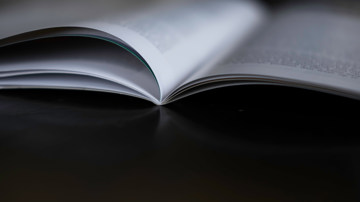

blog
Combining Blockchain and AI to make Smart Contracts Smarter
Blockchain and Artificial Intelligence (AI) are the new giants in technology and two of the hottest topics at the moment. The two technologies are typically considered for separate applications but there is a link: data.
AI allows processing of big data, whereas Blockchain offers security, immutability and decentralised data storage. It makes sense to combine the two technologies to make "Smart Contracts smarter" and to potentially also be a driver of the fourth industrial revolution: Data owners might be able to control their data again by choosing which AI provider to share their data with. Data marketplaces might also be possible, boosting AI applications when combined with Blockchain technology.


blog
What is Blockchain?
Blockchain1 or Distributed Ledger Technology has become a trending topic especially in the light of cryptocurrencies, smart contracts, ICOs and other areas in the context of digitisation, which are based on this technology. This technology and the (alleged) possibility to digitalise any kind of assets or create bullet-proof sets of data has the potential to revolutionise certain industries. It is therefore essential to understand blockchain technology in order not to fall behind. The following is a brief introduction to the technology, its variants, advantages and possible applications.

newsletter
Romania: Cybersecurity - call for action for major companies in critical sectors
The first piece of EU-wide legislation on cybersecurity is expected to be transposed into Romanian law anytime now, bringing into play enhanced system security obligations for major companies in certain sectors, as well as fines of up to 5 % of non-compliant companies' turnover.
press release
Austria: Schoenherr advises crowdinvesting company CONDA on first-ever digitalisation of shares via blockchain in Austria
Schoenherr and CONDA AG ("CONDA") have succeeded in digitalising the shares of the joint stock company and enabled registered shares to be managed via blockchain technology.

newsletter
Austria: ECJ latest Facebook ruling makes waves: Impact under the GDPR?
In its decision C-210/16 of 5 June 2018, the European Court of Justice (ECJ) ruled on a dispute between a German academic institution and a German data protection authority. The institution operated a fan page on Facebook and collected user data via cookies, which were placed by means of a function called "Facebook Insights".

newsletter
Österreich: Selbstlernende Systeme: Wem gehört’s – wer hat Schuld?
Die rasante technologische Entwicklung bis hin zu den sich selbst weiterentwickelnden Systemen künstlicher Intelligenz verlangt nach neuen juristischen Denkansätzen.
press release
AT/CZ: Schoenherr strengthens teams in Vienna and Prague with two new contract partner promotions
Schoenherr is announcing the promotion of Austria IP lawyer Michael Woller and Czech corporate/M&A expert Vladimír Čížek to contract partner.

roadmap
Austria: Trademarks – The New Concept of Intervening Rights
With the EU trademark law reform, the possibilities to defend a later trademark against an earlier trademark have been significantly expanded due to the establishment of so-called intervening rights.
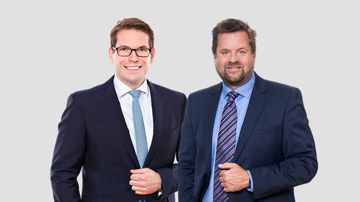
roadmap
Austria: Machine Learning: Whom to Credit, Whom to Blame?
Rapid technological progress, artificial intelligence, machine learning – all those advancements require a new concept of legal thinking.






